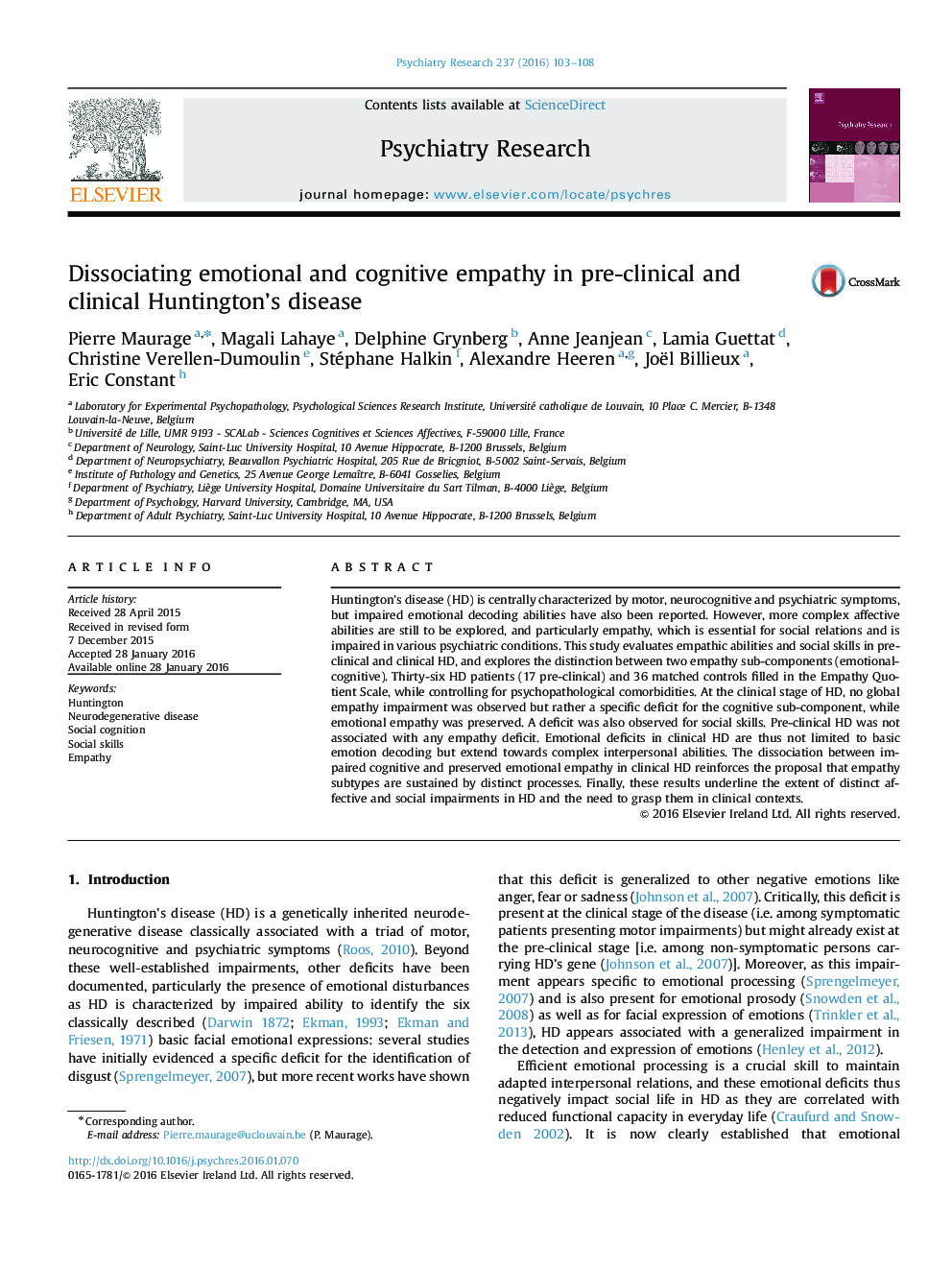| Article ID | Journal | Published Year | Pages | File Type |
|---|---|---|---|---|
| 333099 | Psychiatry Research | 2016 | 6 Pages |
•Empathy is explored in pre-clinical and clinical Huntington’s disease (HD).•Clinical HD is associated with preserved emotional but impaired cognitive empathy.•Impaired self-reported social skills are also found in clinical HD.•No deficits for empathy or social-skills are observed in pre-clinical HD.•Rehabilitation programs focusing on cognitive empathy should be developed in HD.
Huntington’s disease (HD) is centrally characterized by motor, neurocognitive and psychiatric symptoms, but impaired emotional decoding abilities have also been reported. However, more complex affective abilities are still to be explored, and particularly empathy, which is essential for social relations and is impaired in various psychiatric conditions. This study evaluates empathic abilities and social skills in pre-clinical and clinical HD, and explores the distinction between two empathy sub-components (emotional-cognitive). Thirty-six HD patients (17 pre-clinical) and 36 matched controls filled in the Empathy Quotient Scale, while controlling for psychopathological comorbidities. At the clinical stage of HD, no global empathy impairment was observed but rather a specific deficit for the cognitive sub-component, while emotional empathy was preserved. A deficit was also observed for social skills. Pre-clinical HD was not associated with any empathy deficit. Emotional deficits in clinical HD are thus not limited to basic emotion decoding but extend towards complex interpersonal abilities. The dissociation between impaired cognitive and preserved emotional empathy in clinical HD reinforces the proposal that empathy subtypes are sustained by distinct processes. Finally, these results underline the extent of distinct affective and social impairments in HD and the need to grasp them in clinical contexts.
